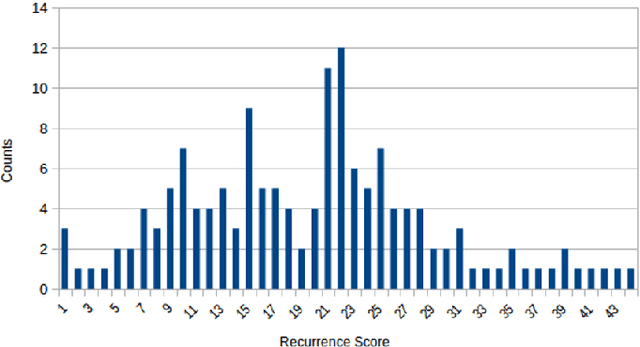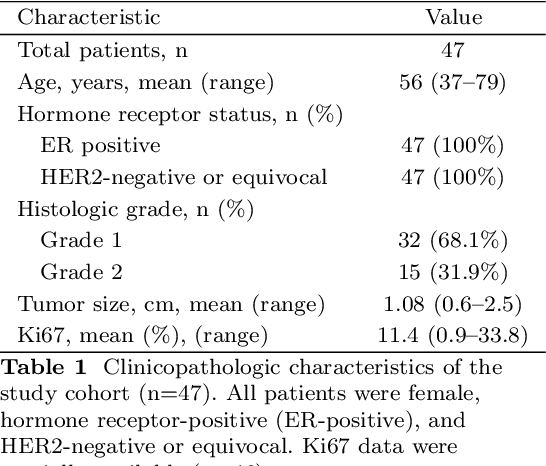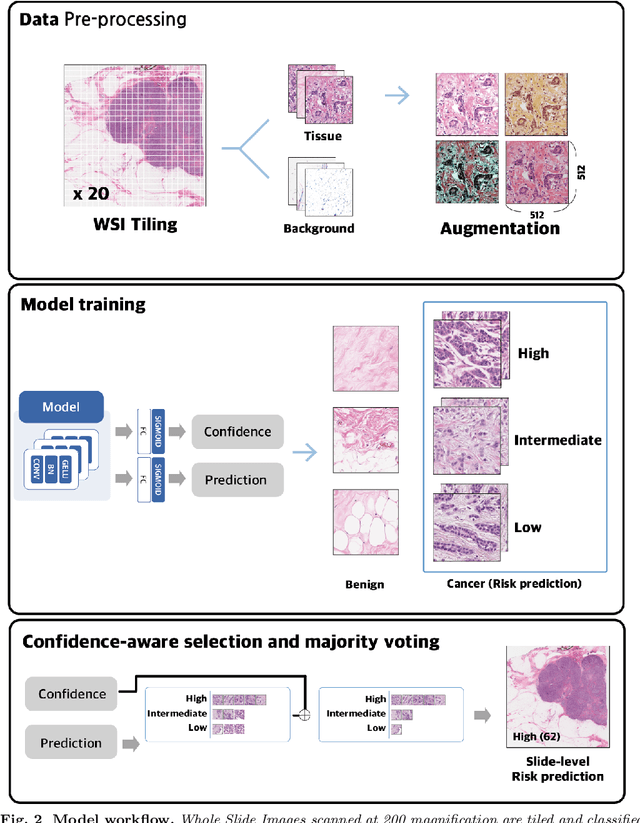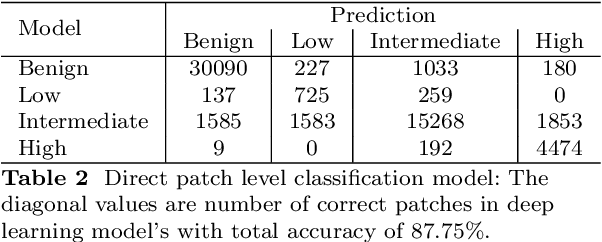Tae-Yeong Kwak
Predicting the risk of early-stage breast cancer recurrence using H\&E-stained tissue images
Jun 10, 2024



Abstract:Accurate prediction of the likelihood of recurrence is important in the selection of postoperative treatment for patients with early-stage breast cancer. In this study, we investigated whether deep learning algorithms can predict patients' risk of recurrence by analyzing the pathology images of their cancer histology. A total of 125 hematoxylin and eosin stained breast cancer whole slide images labeled with the risk prediction via genomics assays were used, and we obtained sensitivity of 0.857, 0.746, and 0.529 for predicting low, intermediate, and high risk, and specificity of 0.816, 0.803, and 0.972. When compared to the expert pathologist's regional histology grade information, a Pearson's correlation coefficient of 0.61 was obtained. When we checked the model learned through these studies through the class activation map, we found that it actually considered tubule formation and mitotic rate when predicting different risk groups.
Overcoming Catastrophic Forgetting by Neuron-level Plasticity Control
Jul 31, 2019



Abstract:To address the issue of catastrophic forgetting in neural networks, we propose a novel, simple, and effective solution called neuron-level plasticity control (NPC). While learning a new task, the proposed method preserves the knowledge for the previous tasks by controlling the plasticity of the network at the neuron level. NPC estimates the importance value of each neuron and consolidates important \textit{neurons} by applying lower learning rates, rather than restricting individual connection weights to stay close to certain values. The experimental results on the incremental MNIST (iMNIST) and incremental CIFAR100 (iCIFAR100) datasets show that neuron-level consolidation is substantially more effective compared to the connection-level consolidation approaches.
 Add to Chrome
Add to Chrome Add to Firefox
Add to Firefox Add to Edge
Add to Edge